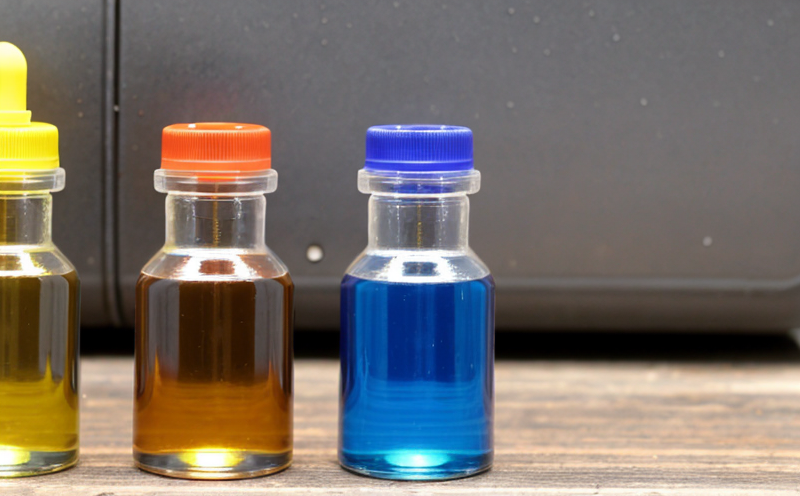Boiler Water pH Testing
The quality of boiler water is a critical aspect in the maintenance and longevity of industrial boilers. Boiler water pH testing plays an essential role in ensuring optimal performance, extending equipment life, and preventing costly downtime due to corrosion or scaling.
Water within boilers can experience various chemical reactions that affect its pH levels. These changes are influenced by factors such as feedwater quality, boiler type, and operating conditions. For instance, hard water with high mineral content can lead to the formation of calcium carbonate scales, which not only reduce heat transfer efficiency but also increase the risk of corrosion.
The primary goal of boiler water pH testing is to maintain a balanced range that prevents these adverse effects. According to ISO 9921-4:2017 and ASTM D5308-15, the optimal pH level for boiler water typically falls between 9.5 and 10.5 under typical operating conditions. This narrow band ensures effective corrosion protection while minimizing scaling tendencies.
Proper specimen preparation is crucial for accurate testing results. Water samples should be collected from the boiler’s recirculating system, ensuring they are representative of the entire water volume. Sample containers must be clean and free from contamination to avoid skewed pH readings. Once collected, samples can be analyzed using various methods, including colorimetric indicators or automated pH meters.
Automated pH monitoring systems offer continuous real-time data on boiler water pH levels. These systems are particularly beneficial in large-scale industrial settings where manual testing may not provide immediate insights into changing conditions. By integrating with control systems, these monitors can trigger alerts when deviations from the set parameters occur, allowing for timely corrective actions.
Accurate and reliable pH testing is essential for maintaining boiler efficiency and safety. Inadequate control of boiler water pH can lead to a range of issues including:
- Increased corrosion rates
- Formation of scale deposits
- Reduction in heat transfer efficiency
- Risk of boiler tube failures
The importance of pH testing extends beyond operational efficiency; it also has significant environmental implications. Excessive alkalinity in boiler water can be harmful if discharged into municipal wastewater systems. Proper management ensures compliance with local regulations while protecting the environment.
Industry Applications
The application of pH testing in boilers is widespread across various industries, including power generation, petrochemicals, and manufacturing. Each sector has unique requirements based on specific operational conditions and regulatory standards. For instance:
- Petrochemicals: High-pressure steam systems require stringent controls to prevent scaling and corrosion in complex chemical processes.
- Manufacturing: Continuous monitoring ensures consistent product quality by maintaining optimal process conditions.
- Power Generation: Large-scale boilers demand reliable pH testing for efficient operation and safety.
In all these sectors, the ability to accurately measure and control boiler water pH is paramount. Regular testing helps in identifying potential issues early, thereby reducing maintenance costs and ensuring continuous operational efficiency.
International Acceptance and Recognition
The importance of accurate and consistent pH testing has been recognized globally through various international standards. Organizations such as the International Organization for Standardization (ISO) and ASTM have established guidelines that provide a framework for reliable pH measurement in industrial settings.
ISO 9921-4:2017 outlines the methodology and acceptable limits for pH testing of boiler water, emphasizing the need for precise methodologies to ensure consistent results across different facilities. This standard is widely accepted and implemented by industries worldwide.
ASTM D5308-15 provides additional guidance on the selection of appropriate equipment and techniques for measuring pH in industrial water systems. Compliance with these standards demonstrates a commitment to quality and reliability, enhancing trust among stakeholders.
The acceptance of these standards is not limited to industrial settings; they are also recognized by regulatory bodies such as the Environmental Protection Agency (EPA) in the United States. Adherence to international standards ensures that facilities meet both internal and external expectations for operational excellence and environmental responsibility.
Competitive Advantage and Market Impact
Boiler water pH testing is not just a compliance requirement; it offers significant competitive advantages in terms of operational efficiency, cost savings, and safety. By maintaining optimal pH levels, facilities can:
- Maximize Boiler Efficiency: Properly controlled boiler water prevents scaling, which enhances heat transfer efficiency.
- Reduce Maintenance Costs: Early detection of potential issues through regular testing minimizes the need for costly repairs or replacements.
- Ensure Compliance: Adherence to international standards and regulatory requirements ensures compliance with local and international laws.
- Increase Safety: By preventing corrosion and scaling, pH testing helps in maintaining a safer operational environment.
The market impact of effective boiler water pH management is substantial. Facilities that prioritize this aspect are more likely to attract investors and partners due to their reputation for reliability and sustainability. Moreover, the ability to demonstrate compliance with recognized international standards can differentiate a company from its competitors, particularly in sectors where regulatory scrutiny is high.





